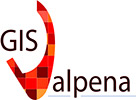Séminaire international "Fisheries and Fishers in Marine Spatial Planning"
-
Du 14 juin 2017 au 15 juin 2017MSH Ange-Guépin, Nantesfalse false

Organized by B. Trouillet, member of LETG Lab. (CNRS & University of Nantes).
With the support of research projects (COSELMAR funded by the Region Pays de la Loire, KIFANLO funded by the Fondation de France), the LETG laboratory and the MSH (CNRS & University of Nantes), this seminar has bring together a limited number of invited researchers interested in fisheries and fishers in the context of maritime spatial planning. In these discussions, emphasis has been particularly placed on critical approaches in the social sciences, in order to rethink more broadly issues of spatiality and power in maritime planning. Indeed, fishing activities offer an important perspective for reinterpreting spatiality given the special characteristics of fisheries (mobility, variability, data-poor context, diversity of fishing strategies, mapping, etc.). These also put more 'political' issues into relief (forms of participation, ways of taking fisheries into account in planning documents, etc.). Starting with the case of fisheries and fishers in the context of marine spatial planning, the ambition was to promote theoretical exchanges about power relations, knowledge, space, values/metrics, and participation.
The following points have been thus discussed, with an emphasis as far as possible on critical examination:
- diversity of fisheries and varying challenges,
- fisheries/fishers and ocean grabbing, privatization and neoliberal trends,
- fisheries/fishers and rationalist discourse (data and mapping),
- fishing strategies in the context of shared seas (especially within an historical perspective),
- fisheries and spatiality in MSP documents,
- values and metrics of fisheries in MSP documents,
- fishers and participation (empowerment, governance...).
- Andronikos Kafas (Marine Scotland, Aberdeen, UK): Integration of fisheries into Marine Spatial Planning: The Scottish Example
- Vanessa Stelzenmuller (Thünen-Institut, DE): Co-location of passive gear fisheries in offshore wind farms: Fairytale or future marine spatial planning approach?
- Margarida Almodovar (Portuguese Environment Agency, PT): Fisheries and fishing communities in the Portuguese MSP process
- Arielle Levin (San Diego State Univ., USA): Participatory mapping of marine activities and fishermen adaptability - collecting information prior to an MSP agenda
- Stephen Jay (Univ. of Liverpool, UK): A poor catch? Developing closer working between fisheries and MSP
- Wesley Flannery (Queen's Univ., Belfast, UK): Marine Spatial Planning and Empowering Stakeholders
- Kevin St. Martin (Rutgers Univ., USA): Global Ambitions: Enhancing Local Capacities and Harnessing the Power of Marine Spatial Planning
- Brice Trouillet (Univ. of Nantes, FR): Empowering Fishers through valorization of their mapping knowledge
- Tim Acott (Univ. of Greenwich, UK): Cultural ecosystem services, sense of place and wellbeing in small-scale fisheries
- Sofie Joosse (Swedish University of Agricultural Sciences, Uppsala, SE): Follow the fish: The role of fish in the economy and the economy in fish
- Derek Johnson (Univ. of Manitoba, CA): Anthropological reflections on time and the politics of space in fisheries governance
- Seth Macincko (Univ. of Rhode Island, USA): Marine spatial 'planning' in an era of privatization
- Svein Jentoft (Univ. of Tromsoe, NO): Governing knowledge conflicts on the coast.
The seminar has delivered rich outputs (such as projects of a conference report in a journal and regular scientific papers), and now aims to contribute to reshape scientific communities by making links between existing networks (TBTI, MSPRN, ICES WGMPCZM).
The "Printemps de l'IUML" gathers 12 workshops, seminars and symposia, for a total of 31 days, with the participation of more than 500 foreign scientists.
More info on :
- the research consortium IUML
- the LETG lab
- the MSH Ange-Guépin
- the VALPENA project
- the COSELMAR project
